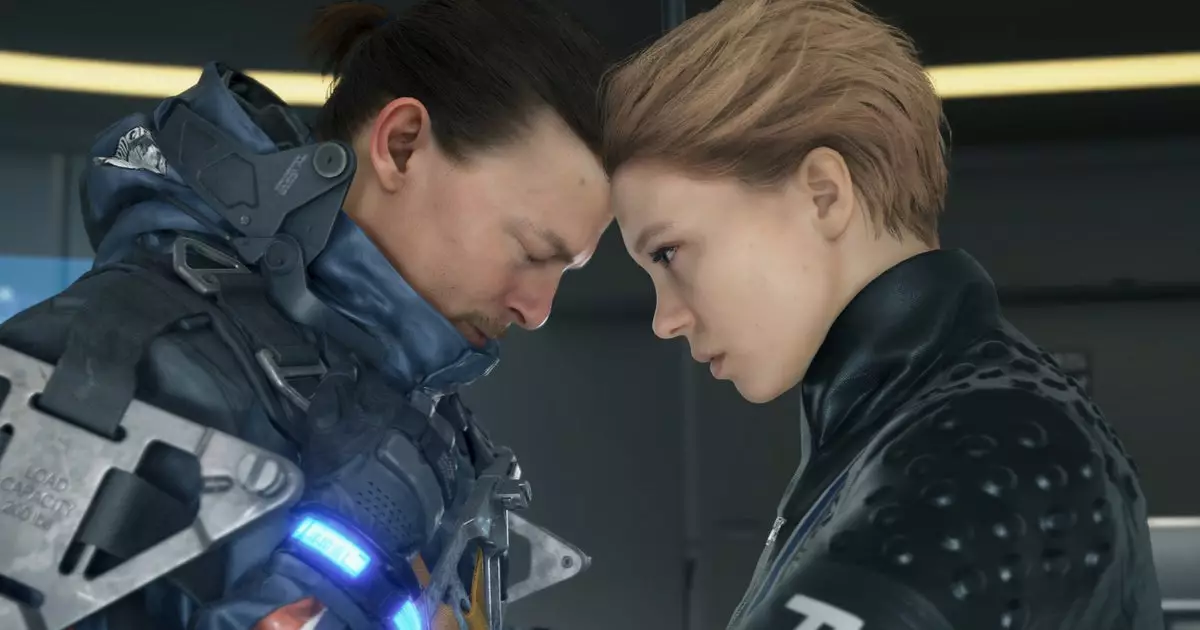Hideo Kojima is not your conventional game designer; he is a creative force who constantly challenges the norms of video game storytelling and mechanics. His fascination with pushing boundaries is apparent in the wacky concepts he proposes, such as a gameplay mechanic that causes characters to forget their abilities if players take an extended break from a session. This audacious idea is merely a reflection of his wider approach, one that consistently gravitates towards the unconventional. Throughout his career, Kojima has crafted games that delve into the intricate relationship between life, death, and everything in between. His most notable creations, including “Death Stranding,” explore themes that resonate deeply with players on existential levels, often leaving them pondering profound philosophical questions.
Kojima’s recent musings reveal a deeper, more introspective aspect of his personality. He has been reflecting on his own mortality, especially after COVID-19 significantly impacted his life and the world around him. Pandemic experiences not only transformed how he perceives his age but also prompted significant shifts in his priorities as a creator. Turning 60, an age when many contemplate their legacies, masked a much more crucial reckoning—one initiated by a grave illness that left him unable to create. This stark confrontation with mortality has led him to place greater emphasis on leaving a lasting impact through his artistry, rather than simply maintaining the status quo of existing works.
Confronting Mortality Through Creation
Kojima’s candid acknowledgment of his health struggles during the pandemic culminated in a realization that the clock is ticking louder than before on his creative pursuits. “Wait, how many years do I have left to make a game or a film?” he pondered, unveiling the vulnerability that often accompanies high-profile creators in the twilight of their careers. This vigorous self-examination feeds into the content and themes he weaves into his works, pushing him toward innovation rather than complacency.
His previous works, from the critically acclaimed “Metal Gear Solid” series to the more recent “Death Stranding,” exhibit a penchant for intricate narrative structures, intertwining life and death with stunning surrealism. The fallout from the pandemic has only intensified his desire to explore the fragility of existence further. Perhaps this is why he is seriously considering branching out into film—while the filmmakers he consulted urged him to stay within the gaming realm, it highlights the restlessness that characterizes his creative spirit. Here’s a chance to redefine storytelling on his own terms, regardless of the medium.
Kojima’s vision for the future of Kojima Productions exists in tandem with his reflections on mortality. With an unsettling yet optimistic mindset, he has prepared for the eventuality of his absence. By passing a USB stick containing his creative vision to his assistant, he ensures that his ideas can continue to flourish, even posthumously. The seriousness of this gesture hints at a keenness to cultivate a legacy that extends beyond his immediate influence. Rather than simply resting on the laurels of his past achievements, Kojima envisions a vibrant company that continues to innovate.
The Future of Kojima Productions
Kojima’s honesty about his fears surrounding the future of Kojima Productions speaks volumes. He recognizes that his studio should not merely recycle established intellectual properties—the thought of allowing his creations to languish in a world devoid of his unique creative vision is unsettling. He wants his studio to evolve, to experiment, and to push the frontiers of interactive storytelling and gameplay mechanics even when he is no longer at the helm. The drive containing his ideas is tantalizingly mysterious; the potential of what lies within it ignites curiosity and intrigue. What radical concepts could emerge once Kojima’s imagination is fully realized?
This introspection elevates Kojima from mere creator to philosopher in the world of video games, embodying the idea that the medium can transcend entertainment to become a profound exploration of consciousness and existence. The potent blend of fear, hope, creativity, and responsibility he showcases reiterates why he remains a pivotal figure in the gaming industry. Kojima’s relentless pursuit of innovation and his earnest grappling with existential themes offer a new lens through which we can understand the intersection of art and life, making his journey not only unique but essential in the ongoing evolution of interactive storytelling.


Leave a Reply